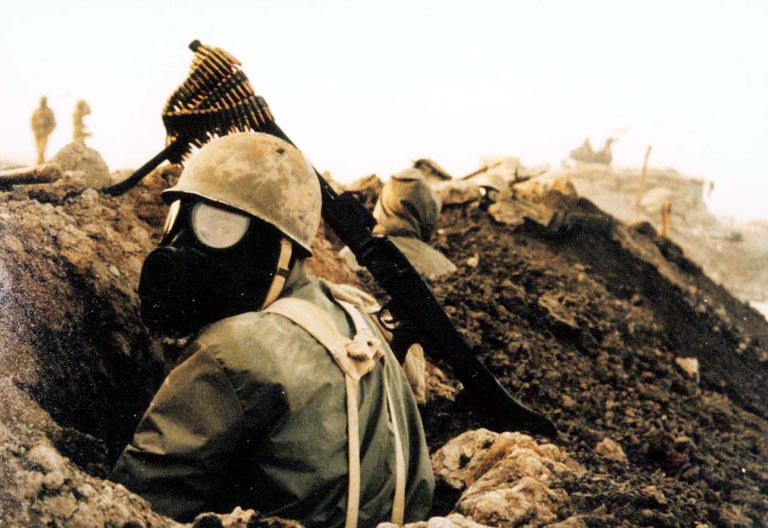
The repercussions of the Iraq-Iran War extended far beyond the region. What began as a limited war between neighbours ended in total warfare in which as many as 44 countries were involved in one way or the other. Many outside powers provided financial and/or logistical support to one side or the other, mainly Iraq, through (illicit) trade in arms or through the internationalized conflict in the Persian Gulf.
The war would lead to a series of scandals, the best known of which was the Irangate (or Iran-Contra) scandal in the United States. Although many countries secretly traded arms with the two countries, most of the outside powers publicly criticized Iran and backed Iraq, or remained neutral. Iran had antagonized most of the world with its uncompromising stance in international relations and its revolutionary rhetoric. Many powers feared the negative influence of the Islamic Revolution not only in the region but also in the rest of the world.
Iran, on the other hand, felt threatened by the whole world from the onset of the war. It viewed the outside powers as allies of the Iraqi regime and began to see the ‘Imposed War’ as a conspiracy of the world against the Islamic Republic and Islam itself.
The United Nations, which was actively involved in the conflict almost from the start, was heavily criticized by the Iranian regime, too. As the war proceeded and Iran felt cornered by the international community, its bellicose rhetoric grew even more militant, stressing the need not only for defending the Islamic Revolution at home but also for exporting it to the outside world. As the war continued, Iran thus became more and more isolated.
The Iran-Contra affair
The best-known scandal arising from the Iraq-Iran war, the Iran-Contra affair (Irangate), came to light in November 1986. The clandestine action – which was not sanctioned by the US Congress – began in 1985, when President Ronald Reagan’s administration secretly supplied weapons to Iran, hoping to secure the release of American hostages held in Lebanon by Hezbollah fighters loyal to Ayatollah Khomeini. Proceeds from the weapons sales aided the Nicaraguan Contras, who were conducting a guerrilla war against the Sandinista government

